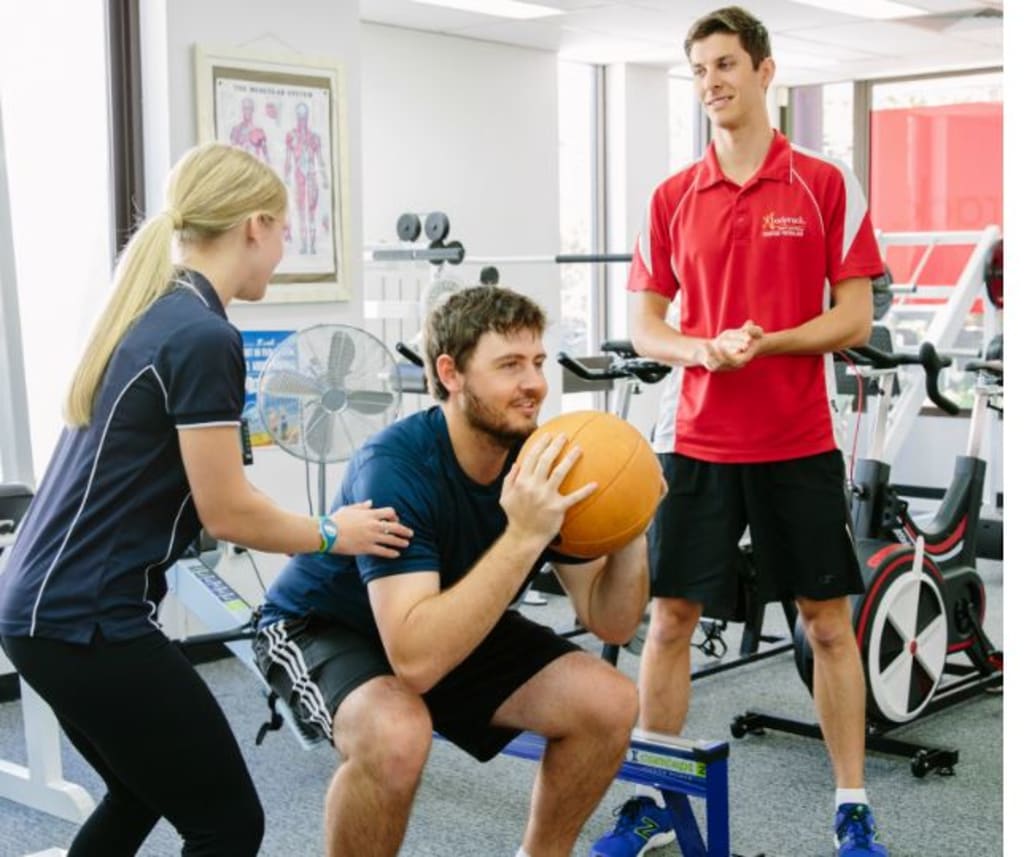What Does an Exercise Physiologist do?
Exercise physiology is the study of exercise

Exercise physiology is the study of exercise. It is one of the many allied health careers that involves studying these natural, short-term responses and long-term adaptive changes to exercise. Exercise physiology also involves training the mind to assess, monitor effectively, and interpret various measurements. Thus, a person needs to choose the right kind of exercise physiology program to address his needs. If you are looking for an exercise physiologist, you can check some online websites like thebetteryoo.com for more information.
Learn about the Human body :
There are different types of exercise physiology programs available in the market today. Most exercise physiologist schools focus on providing students with a comprehensive overview of exercise science. These programs typically include lectures on human body movement, physiological principles, nutrition, exercise control, safety measures, and the role of exercise psychology. These programs can help students become knowledgeable about how exercise science works. Students will also learn about the concepts and principles of exercise physiology, the training of exercise professionals, the definition of exercise, the assessment of exercise science, sample tests and exercises, and the relationships between exercise science and occupational and healthcare medicine.
Practical Exercise Program :
Apart from these lectures, students will also be required to complete a series of practical exercise programs. In most schools, these classes are taught by exercise physiologists. Students will be expected to conduct short sessions of up to one hour each day for up to five hours, depending on their grades. Undergraduate and graduate programs are offered to students who pursue doctorate degrees in exercise physiology. An advanced degree may also help in getting better employment opportunities.
The coursework typically includes lectures, demonstrations, and laboratory exercises. The first part of a course usually focuses on lectures and an overview of topics. Students will learn about exercise physiology and learn how exercise programs affect the body's major organs during this time. These lessons will prepare students to evaluate exercise programs based on their scientific evidence and formulate theories related to exercise physiology.
Clinical Practice :
The student will also be required to do some clinical practice in class, under the supervision of a licensed exercise physiologist. Practicing during class sessions helps students to develop exercise programs and gain experience in conducting their clinical studies. During this stage, they will also develop practical skills that will serve as the basis for future studies. Finally, the course concludes with a final project that will analyze and interpret the study results and recommend changes to a program. This final project will help the student refine their study techniques and make more informed decisions.
Demonstrations on Movements And Postures :
A student will continue with further studies during graduate studies and a more theoretical understanding of exercise physiology. Courses typically include lectures and demonstrations on exercise movements and positions and physiology. The student will also have to conduct clinical studies and give testimony in court cases related to health, safety, and legal issues. The clinical study portion of a master's program is generally conducted in a hospital or similar medical facility and requires the participant to obtain certification while in training.
To become an exercise physiologist, you will want to take a Master's degree in Exercise Physiology followed by additional clinical experience. Students can expect to take about two years to complete the program. They will have the opportunity to choose between a clinical or research-based Masters's program. Both have worked intensively with patients recovering from various illnesses and diseases.
The coursework typically includes anatomy, exercise functions, kinesiology, physiology, safety measures, and therapeutic exercise programs. After finishing a four-year undergraduate degree program, many students pursue graduate work at colleges or universities. Many exercise physiologist positions are available at medical schools and hospitals. Individuals interested in pursuing careers as exercise physiologists must pass an exam before being hired. It is not required for graduates to undergo an exercise physiologist residency. However, it can help enhance their career opportunities and might be worth the time and expense.
About the Creator
THE BETTER YOO
Being an Exercise Physiologist, I’ve dealt with a variety of people with varying needs. I’ve learned EXACTLY what it takes for someone to get in the best shape of their lives and feel amazing – and I want to help you do the same.






Comments
There are no comments for this story
Be the first to respond and start the conversation.